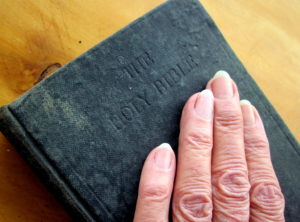 ‘Fact’ and ‘truth’ is not always the same thing. With corporate monopoly of mass media, consummate liars in high places and wealth applied to manipulate public perception, it has never been more urgent for writers to tackle this issue.
‘Fact’ and ‘truth’ is not always the same thing. With corporate monopoly of mass media, consummate liars in high places and wealth applied to manipulate public perception, it has never been more urgent for writers to tackle this issue.
There is no such thing as an ‘alternative fact’ and a ‘post-truth’ society is one heading for disintegration. Without truth there is no trust; without trust there is no social contract. So how can we as writers search out truth? I hope the following extract proves helpful:
“In his essay The Prevention of Literature, George Orwell wrote of ‘the right to report contemporary events truthfully…’– He was writing about literature in general as well as journalism, but it was 1946 and his main concern was loss of writers’ freedom of speech under totalitarian states. We should be no less vigilant in democracies where spin-doctors massage the news and a small number of powerful monopolies control the media. But the other side of the right to tell the truth is the duty to do so.
Orwell’s sentence continues: ‘…or as truthfully as is consistent with the ignorance, bias and self-deception from which every observer necessarily suffers.’ Truth is not easily found. Irrefutable facts are few; everything beyond is someone’s interpretation. About any one situation or event there are, quite legitimately, multiple ‘truths’ depending on whose perspective is expressed. History, in particular, has been prone to the bias of the victor and perpetuated through successive generations by text books following the same master narrative. Alternative histories of colonisation, for example, are only now emerging and receiving recognition.
Travel writers face the problem of their own cultural bias which screens both what they observe and how they interpret it. Writers of memoir and autobiography contend with the limitations of memory and the natural defences of self-deception; even writers of how-to and self-help books can tacitly not see potential weaknesses in their advice. Complete objectivity is not humanly possible.
Yet we seek in nonfiction to give a true account, not to make it up. That is its defining feature. To ignore that is to discredit not only the author, but the entire genre. So what can we do in our writing to be as honest as is humanly possible?
- Stay aware of our own particular potential for bias, and how our own values might influence our judgements in writing accounts of other cultures and times.
- Be meticulous in researching all sides of our topic, rather than finding only what we want to find. All good writing depends on selection – how much/how little to say – but selection is a judgement; if we claim to express principles of wider application, the criterion for selection should not be only the data that fits our cause.
- Enrich our writing by including other perspectives and other ‘voices’: acknowledging their truths while arguing for our own.
- Ensure we record accurately the information we glean from various sources, and take care to apply it without changing its original meaning.
- Make evidence-based facts more vivid by using story techniques like plotting, imagery and characterisation to tell the story, not build a story by manipulating dates and events, or leaving out inconvenient characters and facts. We can mislead and subvert truth by omitting something that is critical to the basic understanding of our subject.
- Do not fabricate. (Sadly, this is not ‘needless to say’: nonfiction writers are regularly exposed for inventing details, even people, in their articles and books. Succumbing to this temptation is usually a misguided attempt to strengthen their case, make their book more exciting or themselves appear more interesting).
All of this applies also to writing memoir and autobiography. But our inner truths are more difficult to access – we do so imperfectly – and they may cause anguish to the author and others involved. We should be as honest as we can in what we share, but we don’t have to share everything. Deciding when the limit to disclosure has been reached is one of the most difficult facets of life-writing and why it is not reliable history, although reading memoirs can deepen our appreciation of other times and societies.”
[Extract from Writing Your Nonfiction Book: The Complete Guide to Becoming an Author]If you found this post of value, please share it with others.
Trish Nicholson is the author of the global history of storytelling: A Biography of Story, A Brief History of Humanity.
